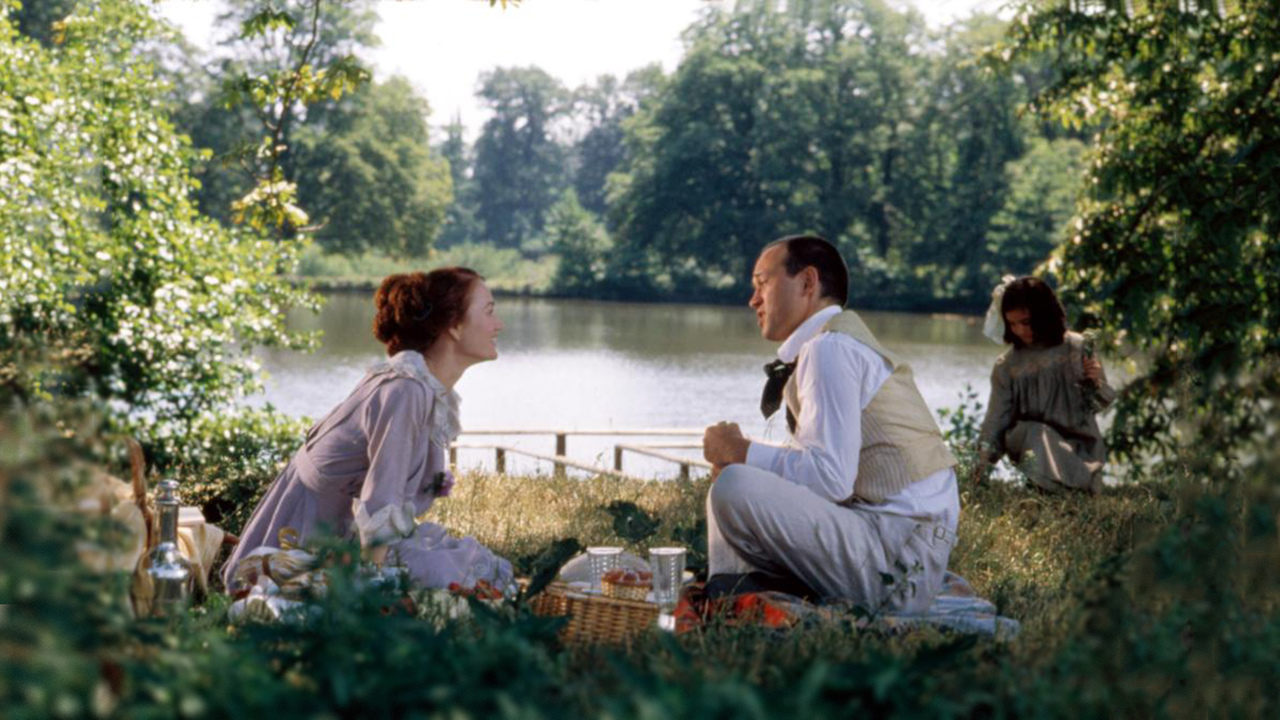

The story of a pioneering, cold and fickle groupie, this movie is one to avoid. Vienna 1902-1919. A good setting for any movie -- it's doubtful that the moviegoer is more familiar with any other period of twentieth century (we have countless monographs, full-scale biographies, novels, histories, museum exhibitions, and concerts devoted to Schnitzler and Musil, Joseph Roth and Grillparzer, von Hoffmansthal and Mahler, Bruckner and Freud, Kokoschka and the other expressionists, Klimt and Jung and the rise of Schoenberg and Jung, Webern and Adler, -- as well as weekly publication for the last few decades of studies of the rise of political anti-semitism - Schnorer, etc.). Yet: a) the movie wastes a few hours to uninformatively tell us that Mahler was a composer and conductor (!), that Kokoschka painted and sculpted un-pretty things (!), that Gropius was an architect who speaks once in praise of form and the absence of adornment, and that Werfel liked to sing and demonstrated against the government. That's it. There really is no more insight into these people.**** SPOILERS**** b) we see a deeply unsympathetic woman who, for no real reason we can see, has an affair with an architect the first time she's away from her children and husband Mahler (telling him - comically - that he "forced her into the man's arms"! and expressing no remorse), then informs the architect into whose arms she was "forced" that she would not stay with her husband - when Mahler is dead, she shacks up again with the architect and resumes her fornication but then decides to go after a painter. We aren't told why she loses her interest in the architect. Later, big with child with the painter who deeply loves her, she kills the child and abandons the artist as World War I begins. Why? We don't learn. She says to one that she was "suffocated". Really? We don't see it. So, when our painter returns from the War, he sees that she's returned to being the concubine of yet another! And is pregnant again with that man's child.Yet we never ever see what draws any of the men to her - except that she aggressively goes after them like any groupie - whether she's married or unmarried, whether they wish it or not.This is truly an anti-feminist story about a woman who found her identity only in that of men - and frantically went from one to another, willing to be sexually used to gain proximity.In an age when so many women made their names famous through their work (Vanessa Bell, Virginia Woolf, Edith Wharton, Katherine Mansfield, Colette, dozens of others in the arts), Alma Schindler Moll Mahler Gropius Werfel managed only to lengthen her own by lying on her back and encourage famous men to go ahead. It's hard to find this appealing.
... View MoreI believe that this film has had very few cinema releases due to the rotten critiques it received.I saw it at a special screening in Canberra hosted by the director (with witty description of the trials and tribulations involved in its production and non-release). I saw it as an 'OK' biopic and certainly better than so much of the characterless violent drivel served up these days (this of course dates me). I think it deserved more exposure than it got - a worthy entry in the great director's portfolio ..... Remember, the critics usually get it wrong .... and they do not pay to see the films.Vienna is beautiful, Mahler's wife, Alma is a forgotten feminist hero whose story deserves telling.
... View MoreThe film seems to have been a history re-enactment on the life of Alma Schindler. It did not get into the details of the what, why and how of the relationships and inspirations. It basically just showed the events in her life. Maybe Sarah Wynter was not the right person for the role because she did not reveal in her role why all these men would fall for her and create greatness in her presence. Or maybe the dialog was too simplistic and things just jumped from courting to ending of the relationship without anybody knowing why it happened. Or the directing just didn't create that passion between any of the two characters for us to think that they would get together. I guess we'll never know.
... View MoreI watched this bit of eye candy in the hope that the story of Alma Schindler Mahler Gropius Werfel would unfold and the world could see a portrait of a daring, talented woman who was indeed liberated in nearly every sense of the word. Mahler is one of one of my favorite composers and I became fascinated with Alma Schindler, believe it or not, from a parody sung by Tom Lehrer. However, since that time, many, many years ago, I've managed to read several excellent biographies of Mahler as well as Alma Schindler's autobiography, which leads me to comment on this film. Sadly, this film disappoints. It is a beautiful piece of work, with darkness wrought from bright colors, ala Bergman's Cries and Whispers, and with wonderful costumes. But, as the other reviews herein note, the script is weak and Sarah Wynter's performance is spotty. Indeed, the two male stars, Jonathon Pryce as Mahler and Vincent Perez as the artist, Oskar Kokoschka outshine Wynter's tentative characterization of Alma. Perez is especially bright, exuding passion and artistic madness, as biographer's have depicted the painter, a pioneer in early 20th Century expressionism. Peter Verhoeven as Gropius and Gregor Seberg as Werfel seem to get ground up and we're left wondering why they were written into the script...in spite of the fact, each played a significant role in the life of Alma Schindler Mahler Gropius Werfel. Too bad, they are underutilized. And, to continue slamming the script, they are badly depicted. Gropius, the great architectural innovator of the Bauhaus was hardly the foppish Mama's boy shown in the film. And, the passionate, multi-talented Franz Werfel, author of Song of Berndadette and Forty Days at Musa Dagh, was hardly the clowning caricature presented in the film. Even the solid performance of Welsh veteran Jonathon Pryce is led astray. The driven, passionate and often neurotic Mahler, compulsively washing his hands 12 times a day was not the staid, stoic older man shown in this film. So, alas, the great subject matter has been neglected. What results is not-a-bad movie about a fascinating woman that with a bit more research, better script, and a different leading lady could have been excellent, really excellent film.
... View More